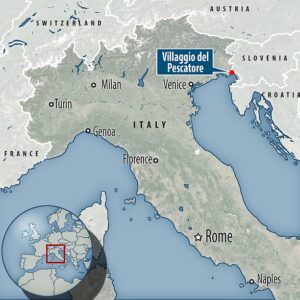Innate qualities and self-effort are important factors that make an excellent individual. However, family education also contributes significantly to a person’s success.
VietNamNet introduces the series of articles “Raising children to become billionaires” , sharing the special parenting concepts of parents of some individuals who are considered exceptionally successful in their fields.
Like any mother, Maye Musk shares that she loves her children and is very proud of what they have achieved.
Her eldest son is billionaire Elon Musk. Her second son, Kimbal, runs a farm-to-table restaurant. Her youngest daughter, Tosca, is a film producer and director.
“People often ask me how I raised such successful children. I tell them I did it by teaching them to work hard and letting them pursue their own passions.”

Let your children work from a young age
Maye was a single mother at the age of 31. She had no other choice but to work full-time. Her children were her top priority, so she worked hard to provide a home, food, and clothes for them.
Her childhood was difficult and she had to work from a young age to help her parents. She started working for her father at the age of 8. She and her twin sister Kaye were paid 5 cents an hour to help send out the monthly newsletter.
They had to fold the small flyers, put them in envelopes and stamp them. The sisters made about 1,000 of these a month. When they were 12, they started working as receptionists at the clinic.
“My parents treated us like trustworthy adults. And that has had a huge impact on how I raise my children. From a young age, my children have helped me with my work,” Maye Musk shared.
While living in Bloemfontein, she took her youngest daughter Tosca with her to work at the modelling school she ran.
“An 8-year-old girl teaches students how to walk, choreographs fashion shows and runs etiquette classes. I even make her assist in all my shows.”
Let me decide what I want

Maye raised her children the same way her parents raised her and her sisters. She taught them to be independent, kind, honest, considerate, and polite. She taught them the importance of working hard and doing good things.
“I don’t treat my kids like kids, nor do I scold them. I never force them to study. I don’t check their homework. That’s their responsibility.”
As the children grew older, they took responsibility for their own futures through the decisions they made. All three applied to the colleges of their choice and completed scholarship and student loan applications.
She believes that children do not need to be protected from the realities of responsibility. “My children benefit because they see me working hard to keep a roof over my head, to put food on my table and to have second-hand clothes to wear.”
When the three of them went to college, they lived in pretty bad conditions: mattresses on the floor, six people to a room or a rundown house. But they were okay with it.
She believes that if children are not used to luxury, they will still do well. “You don’t have to spoil them. When you are sure your children are safe, let them take care of themselves.
Many parents are stressed about their children. I see it all the time in my nutrition practice. They have so much paperwork to fill out to get their child into a good school.
My advice? Let your kids handle their college applications or work-related paperwork. They should be responsible for their own future.
Or if they are interested in starting a business and you think it is a good idea, support them. Teach your children good manners. But let them decide what they want to do,” she advises.





